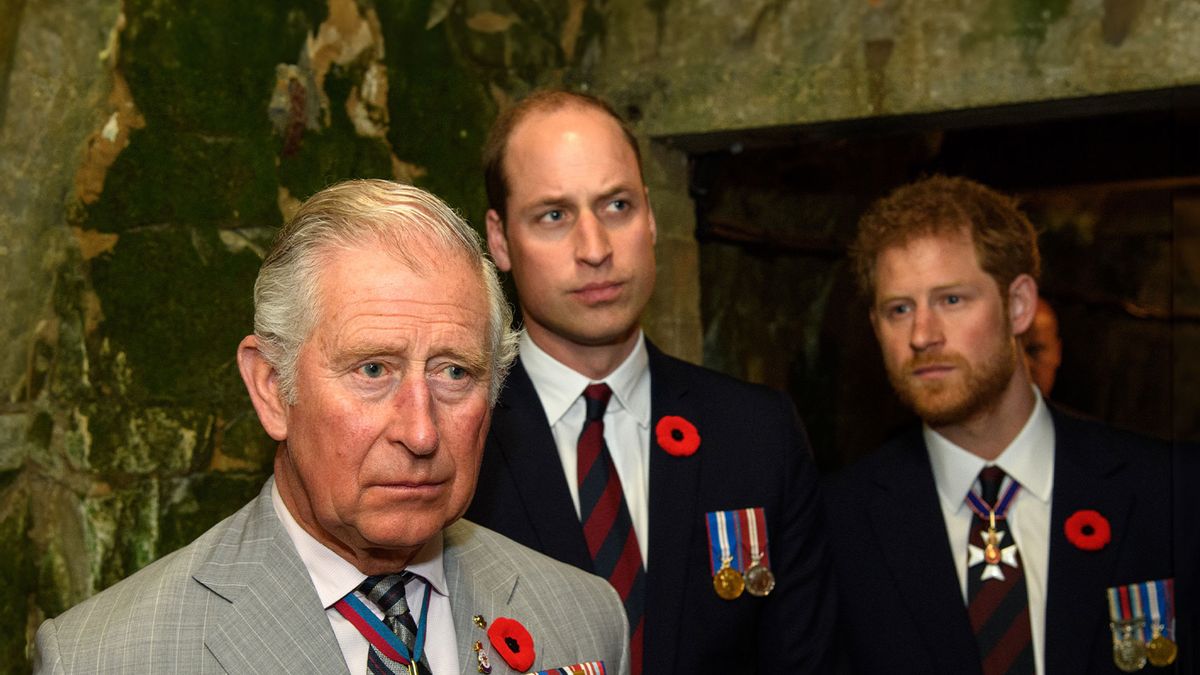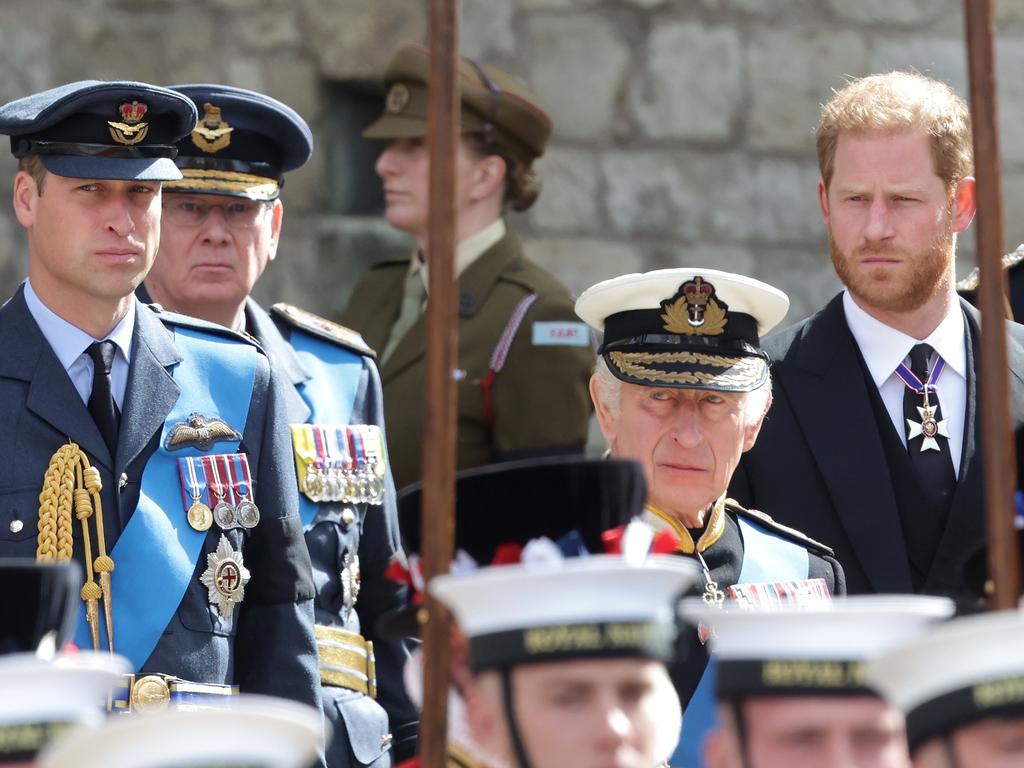Prince William has recently been granted a new military title that many observers find intriguing, especially given Prince Harry’s well-known military background. According to an announcement from Buckingham Palace, King Charles III has named his eldest son the new Colonel-in-Chief of the Army Air Corps. This development has sparked conversation about the duties and traditions within the Royal Family, as well as the historical context of both William’s and Harry’s respective military service.
Below, we delve into the significance of the Colonel-in-Chief appointment, discuss the timeline of events that led to this moment, and explore why some royal-watchers had anticipated a different outcome for Prince Harry. We will also look at what the future might hold regarding the broader relationship between the King, William, and Harry, all while placing the changes in a context that extends beyond simple ceremony.
The Colonel-in-Chief Announcement
The official statement clarifying Prince William’s new title emphasized the formal handover of the Colonel-in-Chief role from King Charles III to his eldest son. This post in the Army Air Corps was previously held by Charles himself for more than three decades. Now, as part of a reorganizing of royal roles and responsibilities, Charles has relinquished that appointment and passed it on to William.
Colonel-in-Chief titles in the British Armed Forces traditionally connect members of the Royal Family to specific regiments or corps, serving as a symbolic bond between royalty and service personnel. While often ceremonial, these titles can deepen the Royal Family’s involvement and visibility within military life. Members of the monarchy regularly attend events, parades, and ceremonies associated with the units they represent, and they frequently use these opportunities to show public support for the troops.
In naming William Colonel-in-Chief of the Army Air Corps, Charles is effectively reinforcing the Prince of Wales’s position as a prominent figure in the military sphere. It underscores William’s existing experience—he served as a search and rescue pilot in the Royal Air Force (RAF) and later worked as an air ambulance pilot. His background in aviation is well-documented, even if he did not serve in active combat roles abroad. By contrast, Prince Harry is widely recognized for his active service in the Army Air Corps, flying Apache helicopters during his second tour in Afghanistan.

Prince Harry’s Military Background
Prince Harry’s military career is one of the more distinguished among younger royals. He joined the British Army in 2005 and underwent rigorous training at Sandhurst. After proving himself capable, he was eventually deployed to Afghanistan. During his second tour (in 2012-2013), Harry served as an Apache helicopter co-pilot and gunner with the Army Air Corps. His work included supporting coalition ground troops and performing security overwatch in challenging conditions.
Harry’s experiences in Afghanistan fundamentally shaped his public image. He later channeled his commitment to veterans by establishing the Invictus Games, a sporting event that brings together wounded, injured, and sick servicemen and women from around the globe. The Invictus Games shine a spotlight on the resilience of military personnel and the continuing challenges of rehabilitation and mental health that service members can face. This philanthropic endeavor—closely tied to Harry’s personal understanding of military life—garnered praise and grew into a cherished sporting occasion on the international stage.
Given Prince Harry’s direct combat role in the Army Air Corps, there has been speculation over the years that he might take on a ceremonial title connected to that very unit. Many assumed that if any changes were made to the Colonel-in-Chief positions, Harry would be a logical choice, given his firsthand experience. However, events took a different turn, particularly following his decision in 2020 to step back from active royal duties.

Stepping Back from Royal Duties
Early in 2020, Harry and his wife, Meghan Markle, announced they would step down as senior royals, a move that led to an array of changes in their professional and personal lives. Under the agreed-upon terms, Harry had to surrender certain official roles, including some military appointments. Though he expressed sadness about losing active ties to military units he had represented, this was part of the broader transition that the couple negotiated with Buckingham Palace.
Harry’s step back led many to speculate about the future of his patronages and the question of whether he might regain any honorary titles later, should circumstances evolve. Yet as time passed, the monarchy reassigned or restructured various responsibilities. Observers noted that while Harry’s heartfelt connection to the military remained undisputed, he was no longer in a formal position to represent specific units. Meanwhile, Prince William’s role in public life continued to expand as he became the direct heir to the throne.
The Army Air Corps and Its Significance
The Army Air Corps is an integral part of the British Army’s aviation branch. While Prince William never served in the Army Air Corps itself—his flight career involved the RAF and emergency services—he is certainly familiar with the discipline and demands of military aviation. Prince Harry’s own service in the Army Air Corps made him particularly associated with that unit in the public’s mind. That personal link is why some have questioned the appropriateness or logic behind bestowing the Colonel-in-Chief title on William instead of Harry.
At the same time, it’s important to note that Colonel-in-Chief roles are customarily assigned based on seniority within the Royal Family and the monarchy’s broader goals for public representation, rather than strictly on operational experience. King Charles III himself held the position for 31 years but never saw active service in the Army Air Corps. Prince William’s selection could be seen as a natural extension of the crown’s hierarchy and its usual practice of passing on ceremonial military roles to the direct line of succession.

The Royal Family’s Perspective
From the perspective of the monarchy, awarding ceremonial titles to the heir apparent reinforces continuity and unity. It also ensures that key roles remain within the core circle of working royals. Given that Harry has stepped away from active royal life, some might argue that the decision about Colonel-in-Chief of the Army Air Corps was inevitable. Others, however, feel that Harry’s background in the unit uniquely qualifies him for the position and that it is unfortunate his father’s title did not pass to him.
Regardless, the formality is that Harry is no longer a working member of the Royal Family. Thus, continuing to assign him an official, high-profile military representation post would run counter to the structure that Buckingham Palace and the broader monarchy prefer to maintain. By giving the title to William, King Charles confirms that Harry’s transition away from official roles remains in effect.
The Timing of the Announcement
The announcement about William’s new role came at a moment of heightened interest in Harry’s movements. Around the same time, the Duke of Sussex was in the UK to commemorate the anniversary of the Invictus Games—a cause central to his post-royal identity. Given the public fascination with the relationship between Harry, his brother, and their father, King Charles, people quickly drew connections between the timing of William’s appointment and Harry’s presence in the country.
Speculation mounted as to whether Harry would meet with any senior royals during his brief visit. However, a spokesperson for the Duke of Sussex indicated that the King was busy, leaving little room for a father-son meeting. Some media outlets reported that no official face-to-face discussion took place, thereby reinforcing the notion that there is still distance between Harry and other members of the Royal Family.
Reevaluating the Relationship Between William and Harry
The decision to name Prince William Colonel-in-Chief of the Army Air Corps undeniably highlights the changing dynamics at play within the Royal Family. Although neither Buckingham Palace nor the Waleses (Prince William and Princess Catherine) offered public comments framing the choice as a snub to Harry, public discourse inevitably leaned in that direction. The two brothers have taken very different paths: William remains a full-time working royal, whereas Harry has forged a new chapter in the United States.
The complexities in their relationship are well-known. They have navigated tension, media scrutiny, and changes in the monarchy’s structure, all in the public eye. While no formal statement emerged regarding Harry’s reaction to William’s newly bestowed title, the swirling commentary suggests that this matter points to the broader challenges facing the royal siblings.
Public Reaction and Broader Reflections
Reactions to the Colonel-in-Chief announcement have varied. Some have expressed dismay that Prince Harry, given his combat experience and association with the Army Air Corps, was not the natural successor to King Charles’s 31-year incumbency. Others see the move as a straightforward reflection of Harry’s stepping back from official duties. Another subset views it as a practical alignment with tradition, since William, as heir, would logically inherit positions from the monarch.
Media outlets, particularly in the UK, wasted little time suggesting that this shift exemplifies an ongoing rift between the brothers. While it’s crucial to separate media narratives from the monarchy’s official stance, it’s also true that the public rarely sees William and Harry together at official events anymore. Indeed, their once closely intertwined lives have diverged to a profound extent.
What remains consistent is that the Royal Family continues to navigate public duties and personal relationships in the spotlight. With each new appointment, official statement, or family gathering, a wave of scrutiny emerges to interpret the deeper meaning behind the monarchy’s moves.

